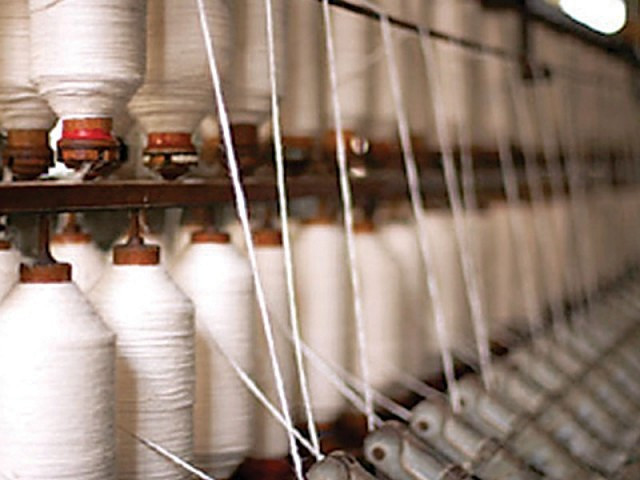Value-added sector opposes duty on yarn import
Says it cannot bear more burden when competition is stiff globally

PHOTO: FILE
This move is primarily aimed at protecting the spinning sector, but it will have a negative impact on the rest of the industry, they say.
“Value-added textiles in general and the apparel sector in particular are under severe pressure due to fierce competition in the international market being faced from countries like Bangladesh, Vietnam and Cambodia,” said Pakistan Hosiery Manufacturers and Exporters Association (PHMA) North Zone Chairman Usman Jawaad.
Squeezing the apparel manufacturers would lead to a decline in export earnings coupled with unemployment, he said.
At present, importers are enjoying zero customs duty on yarn import from India. The value-added sector prefers Indian yarn as it is cheaper than Pakistani product and has good quality due to long staple, which is used for lawn and other cloth manufacturing.
According to experts, India is producing fine-quality yarn because its textile industry is growing and is making new investment in machinery to compete globally.
The All Pakistan Textile Mills Association (Aptma) - a body of spinning units - is continuously voicing concern over the declining domestic fibre consumption in value addition and is pressing for a 15% regulatory duty on the import of yarn and fabric meant for domestic consumption.
According to Aptma statistics, Pakistan is using only 28% of domestic textile, whereas India is using 60% of its local production and thus has the capacity to absorb a sudden crisis.
Pakistan’s per capita fibre consumption is 10 kg, of which only 2.8 kg is produced locally, whereas 7.28kg is either being imported legally or smuggled.
However, the value-added sector insisted that it was the quality not the price that encouraged them to import yarn from India.
They said Pakistan’s value-added sector was facing stiff competition globally and the government should not put additional burden on them, when the cost of doing business was increasing due to energy shortages.
Some positive signs
The European Union’s GSP Plus facility has provided breathing space for the apparel sector, which has been able to increase exports at a time when overall shipments from the country are falling.
“In such a situation, any policy adversely affecting the apparel industry will have a direct and immediate negative effect on overall business activities since this is the largest employing sector of the country,” Jawaad added.
Published in The Express Tribune, August 20th, 2015.
Like Business on Facebook, follow @TribuneBiz on Twitter to stay informed and join in the conversation.



















COMMENTS
Comments are moderated and generally will be posted if they are on-topic and not abusive.
For more information, please see our Comments FAQ